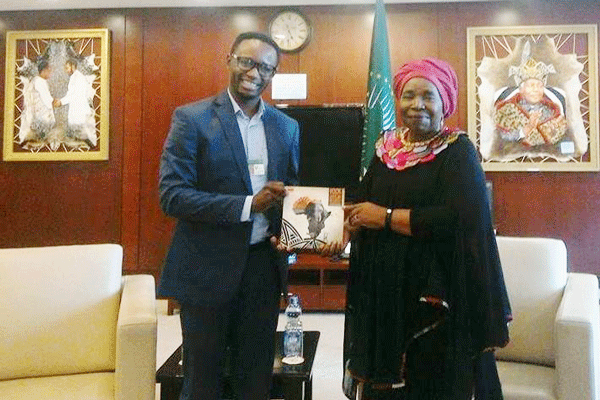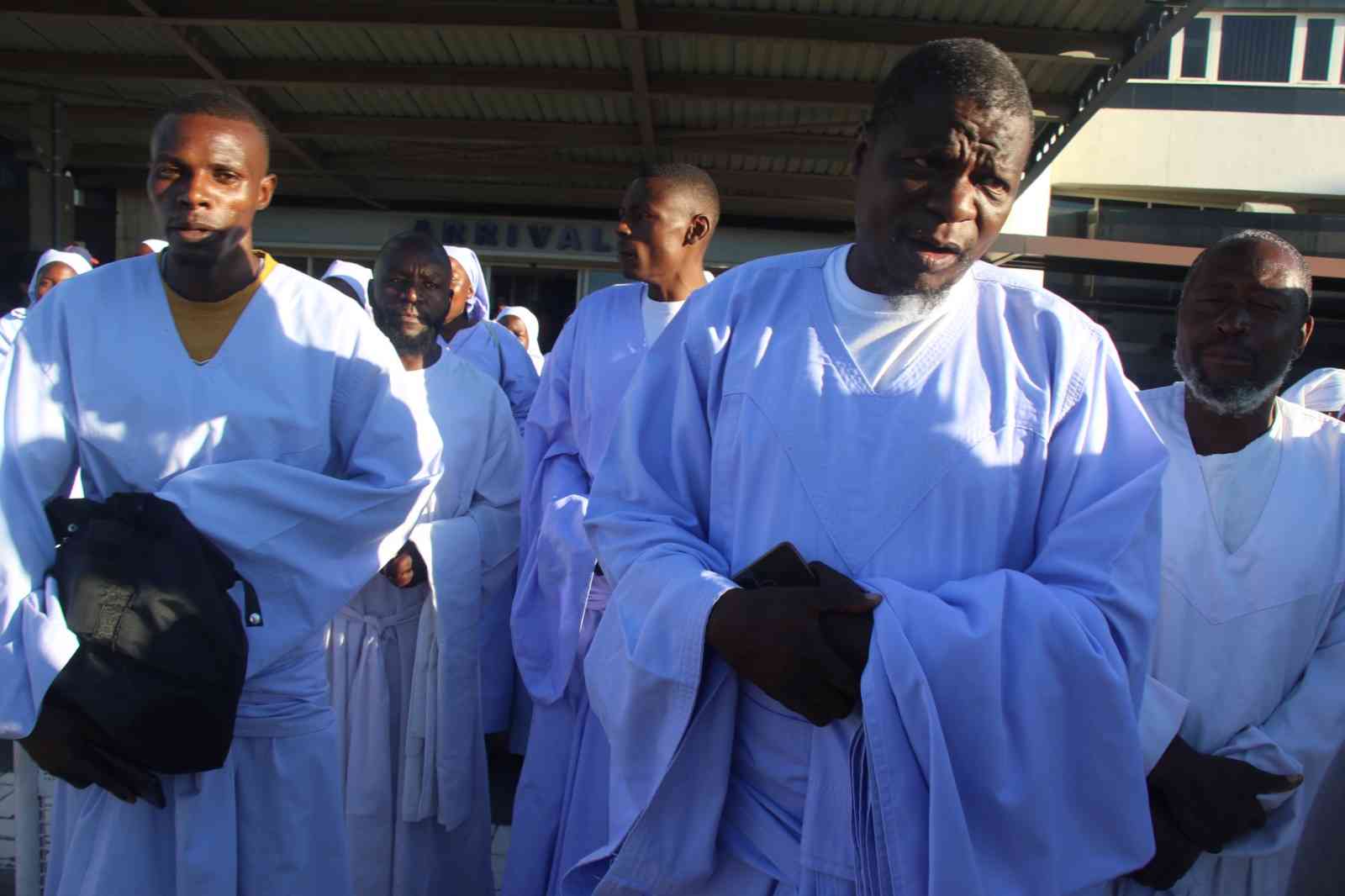
Errol Edgar Tapiwa Muzawazi (aka Kwame) is a Zimbabwe-born academic and explorer who shot to fame when he made it into the Guinness Book of World Records for the longest lecture delivered at Jagiellonian University in Poland which lasted 128 hours.
the style interview By Winstone Antonio

In that lecture punctuated by a series of five-minute breaks every hour, the 33-year-old spoke about Africa’s youths being part of the present and not the future.
Besides being the country’s only entrant in the Guinness Book of World Records, the man is also an explorer, having explored Africa by road while simultaneously engaging with the continent academically as well as writing a book as he sought to re-discover Africa.
He argued that the African story was being told by Europeans and he wanted to change that by interpreting that story from an African perspective.
As part of the journey, he travelled from Morocco in North Africa, via west Africa, to east and central Africa then to southern Africa.
In 2006 he launched the Book of African Records, an “Africanised” version of the Guinness Book of World Records meant to document and publicise information about Africa.
As the editor-in-chief of Book of African Records, he recently signed a remarkable partnership with the African Union (AU), to publish what could be Africa’s ultimate reference book of facts, The African Factbook, at a ceremony held at the AU headquarters in Addis Ababa, Ethiopia.
- Chamisa under fire over US$120K donation
- Mavhunga puts DeMbare into Chibuku quarterfinals
- Pension funds bet on Cabora Bassa oilfields
- Councils defy govt fire tender directive
Keep Reading
Our reporter Winstone Antonio (WA) caught up with Kwame (KM), who opened up on what the partnership with AU meant to Zimbabwe, among other issues and below are excerpts from the interview.
WA: Who is Errol Edgar Tapiwa Muzawazi and why did you change your birth name to Kwame?
KM: I was born Errol Edgar Tapiwa Muzawazi, but in 2010 I dropped the two English names and took on one African name. This happened in Ghana, precisely while I was sitting at the Kwame Nkrumah Memorial Park in Accra. At that moment of enlightenment, I was reading Nkrumah’s book Africa Must Unite. The ideas that this founding father of African political independence had, such as that of removing borders in Africa and creating a federal political union, were irresistible to me.
There was no better way to honour this great pan-Africanist than to take on his first name. As a matter of fact, I strongly believe all Zimbabweans, all Africans, must drop their colonial names.
Your name is your cultural address, and as long as you have a non-African name, you haven’t arrived.
Tell you what, I have been to 146 countries of the world, and in all my world travels, I never met a white man with an African name. The Chinese have Chinese names, the westerners have western names and so forth.
It is only the poor African, lost in a sorry identity crisis, who gets a name that has nothing to do with his tradition, language, culture, spirit and origin. This is why I will tell you that Africa now needs a second African revolution touching the culture and economy fronts, that completes and complements the first political one. Who would argue Africa has unfinished business? WA: You are the man behind the Book of African Records. Can you unmask it?
KM: The Book of African Records is a research, educational and publishing institution that I helped found in 2006. When I realised that there was a need to create platforms to celebrate African achievements, rather than the sickening and false coverage of Africa in today’s world media, I thought a platform to publicise the great deeds of Africans would be welcome.
The first person I talked to about this was (the late) Dr Stan Mudenge. His sense of African history was supreme and he encouraged me to get going without delay. Thus it became. WA: You recently signed an MoU with the African Union. What was the motivation behind this partnership deal?
KM: You may want to recall that in July 2016 at the AU summit in Rwanda, the first edition of the Book of African Records was presented to all 54 gathered African heads of state.
They were impressed by our work and soon after, a proposal came from the African Union that we work on a project called, “The African Factbook” which is, as per contemplation of the signatories, “Africa’s ultimate reference book of facts, information, education and reference”.
We were given 12 months to publish the first edition, which, according to plan, will be adopted by African heads of state as Africa’s official reference book of all things facts.
In simple terms, we are creating indigenous African knowledge for local and foreign use. This is meant to change the current deplorable situation, where you find our kids in school and our professors at universities relying almost completely on non-African sources of information. WA: What will be contained in The African Factbook?
KM: We shall be entering basic information regarding populations, climate, economy, military affairs, education, sport and anything that is of utility and importance to know about Africa. We shall also be verifying long-held information about Africa, as we believe a lot of what you and I know about Africa, as created and taught by non-Africans, is blatantly wrong.
Take for example, a recent discovery by the International Cartographic Association that the current world map as used in classrooms the world over since the 16th century is “wildly misleading” because it amplifies European and American countries while compressing the real size of Africa.
This distortion was designed “to make enlarged countries seem unnaturally powerful and intimidating”. In short, for a whole 500 years Africa — for want of own home-based research and reference literature — has dealt with atrocious docility bought into this propaganda via education that was meant to instil an inferiority complex. And as we speak, this wrong map is being used.
WA: What benefit is The African Factbook going to be to a country like Zimbabwe? KM: Zimbabwe will most probably host the headquarters of The African Factbook. This is a golden opportunity for the country to contribute literature that will be used all over the world. Not least, we expect that 300 new jobs will be created locally to work on the project, which will operate on a multi-million dollar annual budget.
At the expense of sounding bombastic, I have no doubt that in educational and research circles, hosting this project is of the same proportion, impact and significance as being asked to host a Fifa World Cup. You may also want to note that the African Union saw it fit to award this strategic partnership to a Zimbabwean organisation, notwithstanding the ferocious, but failed misinformation campaign that has been driven by powerful governments and global media enterprises over the last 20 years.
As such, Zimbabwe may now victoriously and rightfully fight back with facts, not only on behalf of herself, but on behalf of the entire African continent populated by a billion plus hitherto voiceless citizens.
WA: Are you getting support from the government in doing this and do you think Zimbabwe will adopt The African Factbook as a national project?
KM: We are still waiting for official information from the government of Zimbabwe on how it intends to capitalise on this God-given opportunity. However, judging by the enthusiastic response to this development that was shown by Foreign Affairs minister Simbarashe Mumbengegwi during our consultative meeting recently, I got the impression he knows and understands the great places The African Factbook will take the Zimbabwean flag to.
WA: In 2010, you became the first African to cross the African continent north-to-south by land on a research tour that clocked 24 000km across 17 African countries in six months. How did you manage to accomplish that?
KM: Too much to talk about here, we won’t finish. The good news, however, is I am now writing memoirs of this expedition. I will make sure you get the first copy.
WA: How does it feel being the country’s only entrant in the Guinness Book of World Records for your longest lecture?
KM: I did that long back, when I was a mad young man, but free from indulgence! However, being Zimbabwe’s only person in world records is actually saddening.
We urgently need to create a system of making sure our kids are taught to think, act and achieve globally, not to just beat the kid next door.
But there is one school in Zimbabwe that teaches things like this — I won’t say it by name but they wear purple blazers and they never lose a match.
WA: Obviously, this is your former high school and I will also not mention it by name. Anyway, what is in store this year?
KM: We have a deadline to publish the first edition of The African Factbook by Friday December 29 2017. This is to enable its launch and presentation to the heads of state who will gather for an AU summit in January 2018.
This is a very tight schedule and, therefore, everything that will happen this year, in terms of what we shall do, what we shall eat, what we shall think and sing about and indeed what we shall be dreaming of, will be directed towards the successful take-off and landing of the first edition.
WA: It was nice chatting with Kwame.
KM: My pleasure.











